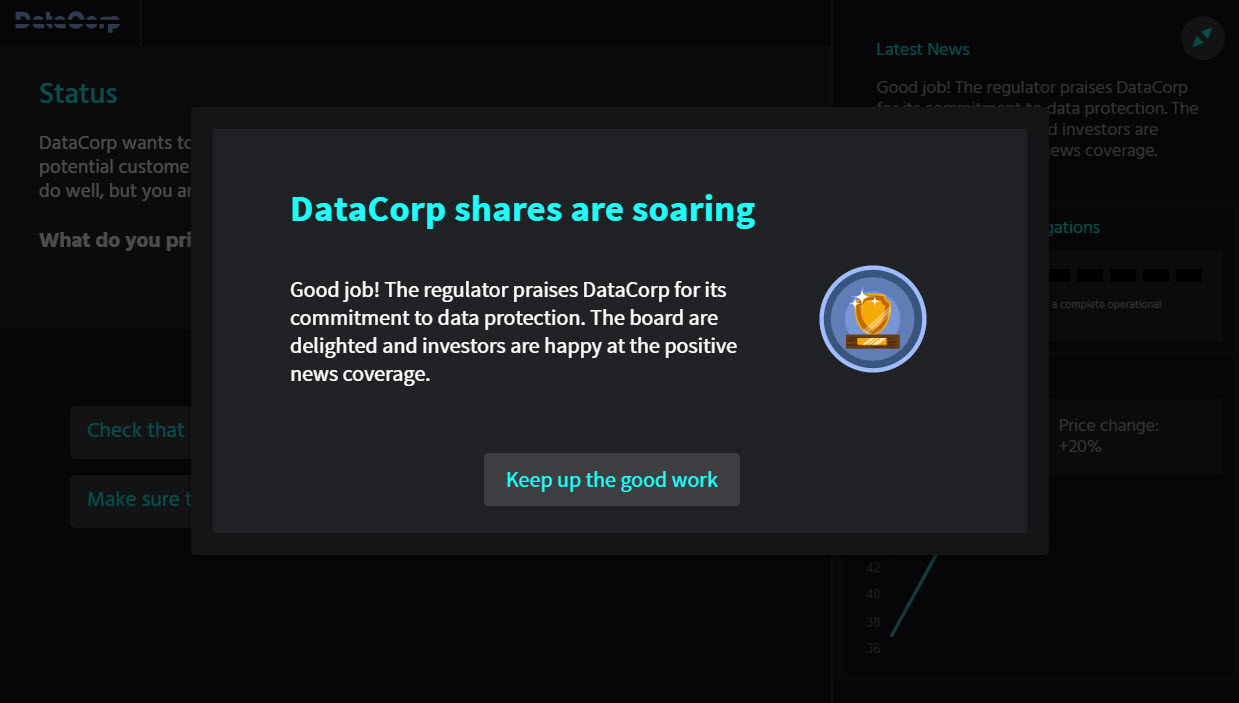How well do you really know data protection rules?
With the new General Data Protection Regulation (GDPR) coming into force in 2018, organisations are working hard to ensure they meet the new regulations. Companies processing over 5000 personal records per year or employing over 250 staff are now required to appoint a data protection officer, or DPO. Marketing teams will need to ensure they have consent from those they are marketing to and genetic and biometric information is now also considered sensitive data and GDPR.
Play the GDPR data protection game

Our data protection game puts you in the manager’s seat and tests your ability to balance your organisation’s interests against the ire of the regulator. As CEO of your company, our simulation will present you with real-world dilemmas to enable you to see the repercussions of your actions on your company’s reputation and share prices. Will you delay a marketing campaign or product launch to ensure the appropriate policies are in place? Do you know whether it is permitted to publish data on a case by case basis?
Upon completing the data protection challenge, users will be given guidelines to protection their staff and employee data based on their answers in the challenge.
Take our GDPR data protection challenge
Data Protection: Privacy at Work
VinciWorks’ new online data protection course will help staff understand data protection rules under GDPR. This interactive course contains review questions and relevant scenarios to help users understand data protection in the context of their everyday work. This is achieved through a modular course that is customised through our course builder. Our modular, mobile friendly training includes specific learning paths for IT, HR, marketing, HIPAA and more.








